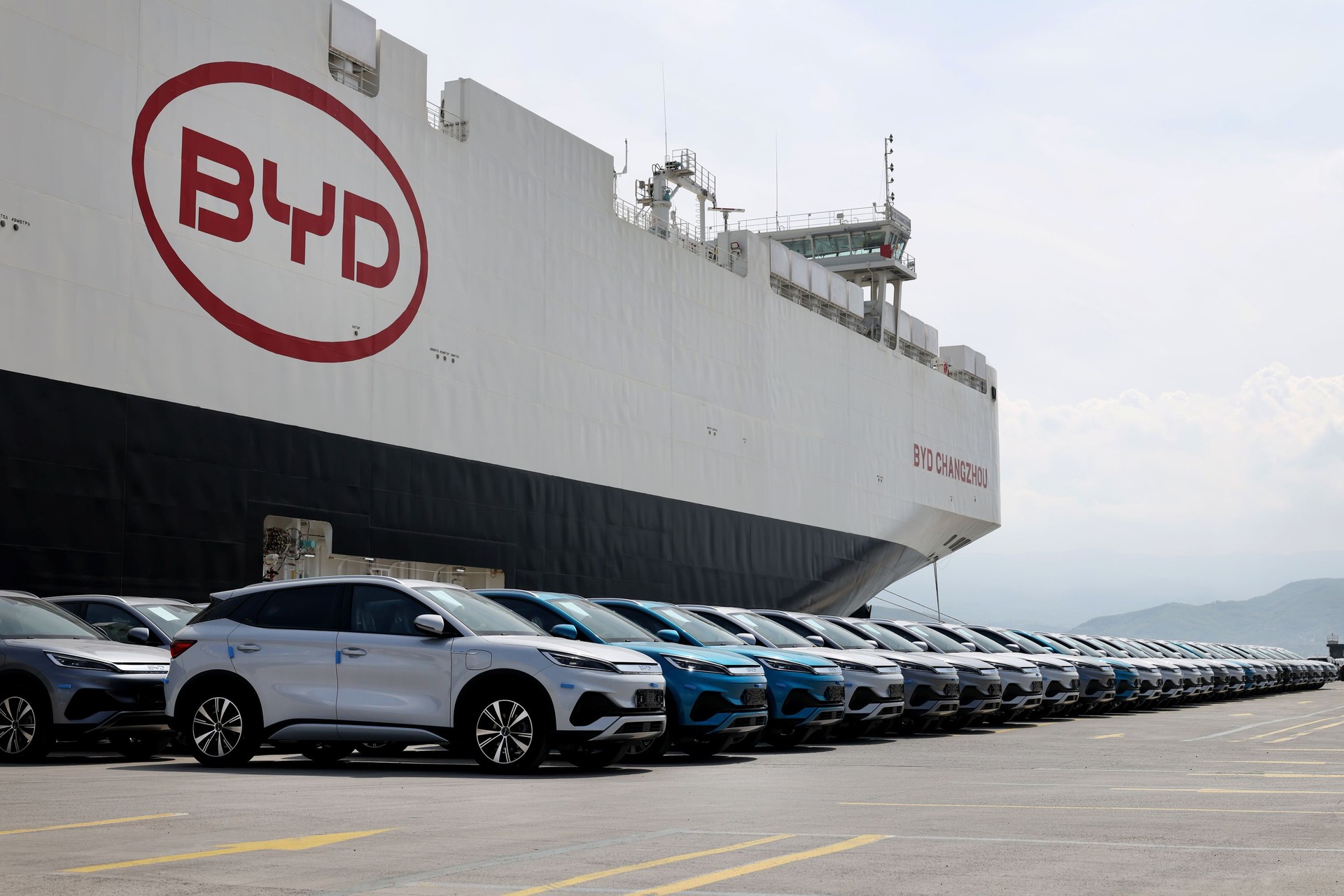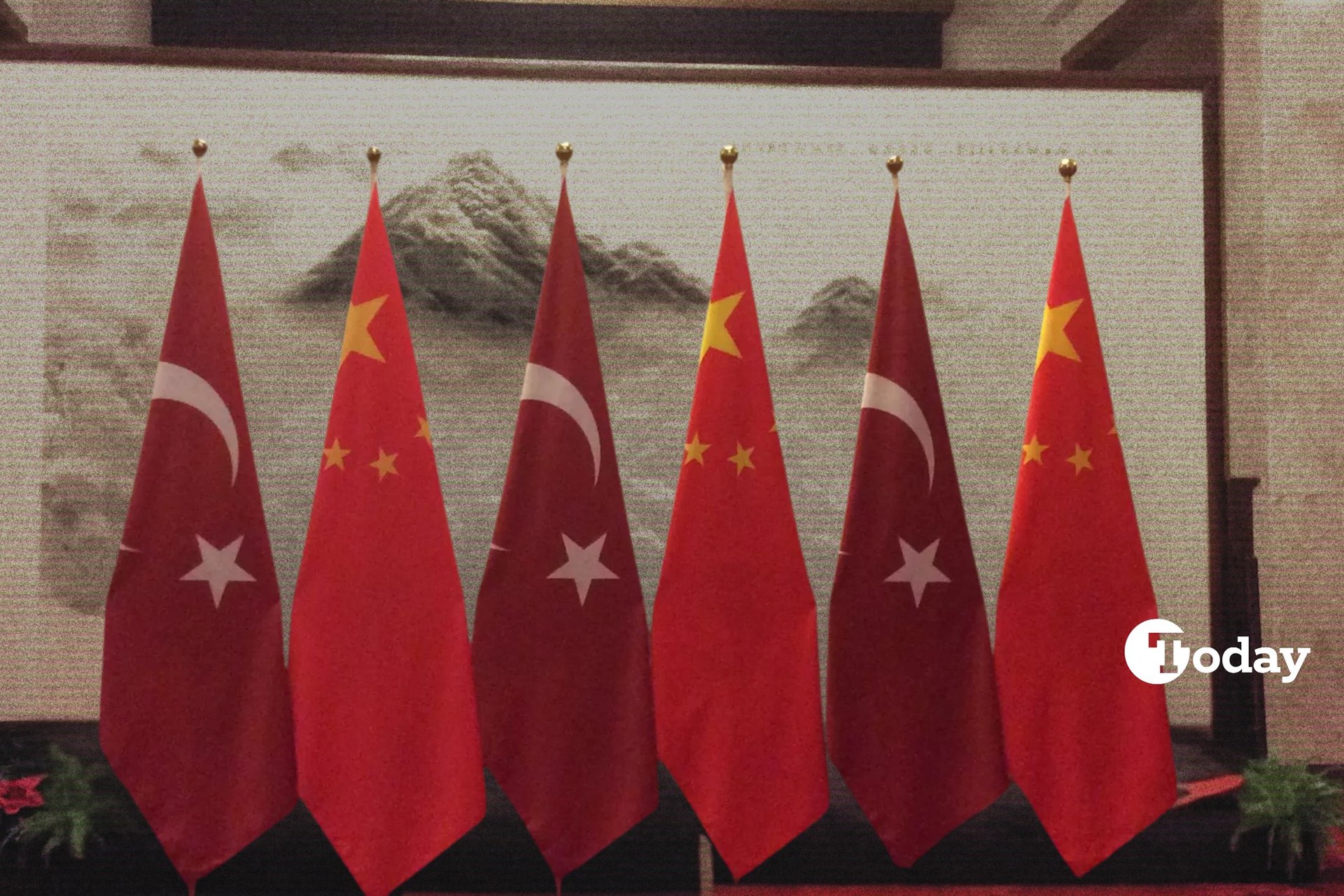The Turkish automotive sector has voiced concern over stalled investment plans by Chinese electric vehicle giant BYD, as the head of Türkiye’s Automotive Manufacturers Association (OSD), Cengiz Eroldu, expressed frustration on Thursday over the lack of progress in the company’s $1 billion factory project.
Although the investment was publicly disclosed over a year ago, Eroldu asserted that there has been no activity at the proposed site in Manisa, a province in western Türkiye.
Speaking to business-focused CNBC-e, Eroldu noted that BYD has yet to begin operations despite the passage of time, emphasizing the need for the company to respond. He added that while BYD’s move to choose Türkiye as a manufacturing hub was welcomed by the sector, the absence of concrete steps on the ground has raised questions.
BYD, a Shenzhen-based electric vehicle manufacturer, recently claimed the top spot in the global market, overtaking U.S.-based rival Tesla with $107.2 billion in revenue in 2024.
On July 8, BYD officially signed a $1 billion investment agreement to establish a manufacturing plant in Manisa, western Türkiye, including the construction of an electric vehicle facility with an expected annual production capacity of 150,000 units.

Infrastructure preparations are underway on the land allocated for BYD, the world’s leading automotive company that decided to invest in Manisa, Türkiye, on Sep. 4, 2024. (AA Photo)
Concerns over trade imbalance with China
In comments addressing broader trends in Türkiye-China automotive relations, Eroldu drew attention to the growing imbalance in trade. He stated that while Türkiye has taken measures to encourage Chinese investment, the flow of goods has been largely one-sided, with Chinese vehicles entering the Turkish market in large numbers, but little or no exports going in the opposite direction.
He underscored the need to maintain equilibrium in trade relations, pointing out that Türkiye is importing vehicles from China without exporting its own products in return. “We need to protect this balance,” he said.

Chinese electric vehicle maker BYD’s carrier, BYD CHANGZHOU, docked at Safiport Derince Port with hundreds of electric vehicles positioned nearby in Kocaeli, Türkiye, on April 6, 2025. (AA Photo)
European manufacturers shift capacity to Türkiye
Eroldu also commented on the redirection of European automotive production to Türkiye. According to OSD’s observations, several manufacturers are shifting excess capacity from Europe to Türkiye, amid rising sales by European brands in the Turkish market.
“We observe a sharp increase in the sales of European brands in Türkiye. Excess production capacity in Europe is shifting here,” he said.
In the first half of 2025, vehicle sales in Türkiye rose by 5.4% year-over-year, reaching a total of 607,977 units. Of this total, 440,986 vehicles—or approximately 72.5%—were imported, while 166,991 units, accounting for around 27.5%, were locally produced.
2025 expected to outperform 2026 amid global uncertainties
Looking ahead, Eroldu stated that the sector does not anticipate 2026 to be a particularly strong year due to potential global economic difficulties. However, he expressed optimism that 2025 could yield better results, particularly in terms of demand and competitiveness.
Eroldu also addressed the industry’s current capacity utilization rate, which stands at 67%. He said this figure is not ideal from a competitiveness standpoint, but still manageable given the current environment.
Türkiye’s automotive exports rose 7.5% in the first half of 2025 compared to the same period the previous year, reaching 530,322 units, while domestic production increased by 5% year-over-year to 706,422 units.








